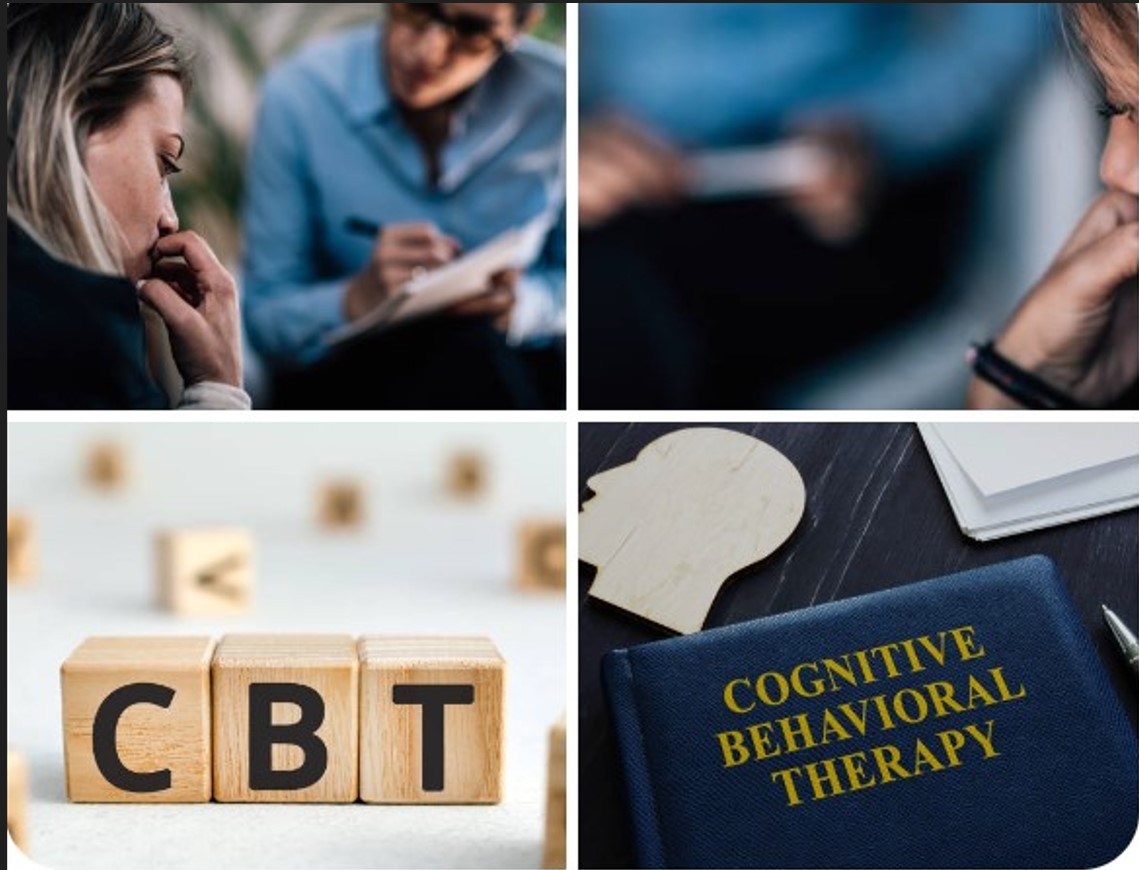Correct Thought and Behavior with Cognitive Behavioral Therapy in Maryland (CBT)
- Home
- /
- Blogs
- /
- Depression
- /
- Correct Thought and Behavior with Cognitive...

Everything is changing at an incredible speed in today’s fast-paced world. Adapting to this change can be quite challenging.
So, conflicts arise both in our surroundings and within our minds. These conflicts give rise to various mental disorders, such as anxiety and depression.
CBT is a short-term therapy. It helps manage anxiety and depression. It can also be effective in treating other mental health problems.
In this article, we’ll learn about the nature of mental health problems and how to overcome them using CBT. We’ll also learn how to get cognitive behavioral therapy (CBT) in Maryland.
When do you need cognitive behavioral therapy?
CBT (cognitive behavioral therapy) is helpful in a wide range of situations. If the answer is yes to any of the following questions, CBT may be a good option for you:
- Are you struggling with anxiety or depression?
- Are you having trouble managing stress or coping with difficult emotions?
- Do you find yourself engaging in negative thought patterns all the time?
- Do you want to improve your communication or relationship skills?
- Are you facing a major life change and need help adjusting?
- Are you seeking to improve your emotional well-being?
Even if you have no medical condition, CBT therapy can help you. It can boost your well-being and create healthier thoughts.
The Core Belief of CBT Therapy
CBT believes that our thoughts, emotions, physical sensations, and actions are all connected.
Any situation first impacts our thoughts, which can be either positive or negative. This pattern of thinking then changes our physical sensations. These thoughts and physical sensations can appear alone or together. They can affect our actions.
Example
Suppose someone says something bad about me. This is the situation. If I truly believe I am bad, my brain will dwell on it. It will complicate the matter with many negative justifications.
This could make me anxious or emotional. As a result of this anxiety or emotion, I might feel physically drained. This is my physical sensation.
So, due to this physical sensation, I might go to bed and try to stay socially isolated. This is my behavior.
How CBT works
Our thoughts, emotions, and sensations are powerful factors that greatly influence our behavior. CBT improves our behavior. It does this by isolating and fixing these factors.
In this case, a therapist can follow the following steps:
- Splitting Behavioral Factors: A therapist first splits out the factors of behaviors in a specific situation. These factors are thoughts, emotions, and feelings and they are very powerful. They can proactively operate on their own.
- Building New Pattern: After splitting the factors, a therapist develops new thought patterns. The therapist finds the triggers for our proactive thinking. They use knowledge and reasoning. They teach us to think more carefully and realistically. This enables us to challenge our thoughts through introspective thinking.
- Realistic Evaluation: A CBT therapist teaches us to change our thinking. They also help us overcome negative thoughts and agitation with relaxation exercises. As a result, our negative emotional experiences also diminish.
- Skill Development: In CBT therapy a therapist teaches us many tools and techniques. This helps us manage our mental health. These tools help us overcome sudden problems. The problems come from our proactive thinking.
That’s how CBT therapy helps us. It gives us the ability to overcome our distress.
Benefits of CBT Therapy
When we take CBT therapy, we’ve got a wide range of benefits. Here are some of the key advantages:
- Short-term Therapy: CBT is a very short-term therapy. Usually. We can complete it within 5 to 20 sessions.
- Well-organized: CBT is well organized because it operates based on a core belief. This belief applies to everyone. It guides therapy. Thus, therapy remains well structured.
- Goal-Oriented Therapy: CBT therapy is designed to achieve specific goals. We use this therapy to navigate negative thoughts and behaviors. They come from certain situations.
- Provide practical skills. CBT therapists don’t just talk about our thoughts. They teach us to think differently through various practical exercises. This helps us learn to cope with negative thoughts and physical reactions.
- Skill-Based Approach: CBT equips us with tools such as knowledge, logic, and skills. Utilizing these, we can effectively alter our thought patterns throughout life.
- Applicable for various purposes: CBT skills are useful for many purposes. They can be used in many parts of life. Using these skills, we can improve our communication. We can also build healthier relationships.
- Effective in Other Medical Conditions: CBT isn’t just for improving our conscious thoughts. It also helps with conditions like OCD, PTSD, and phobias.
- Usable Alongside Medication: If we need CBT therapy alongside other medication, it is possible. CBT is suitable to use alongside other medications when necessary.
Implementation of CBT Therapy
Here are some conditions that CBT therapy has been shown to be effective for:
- Anxiety disorders
Anxiety disorders are a range of mental health conditions. They involve too much anxiety, nervousness, and fear. Those feelings might be persistent or fleeting. While some anxiety is natural, anxiety disorders are separate. They can disrupt everyday life. They make it hard to keep a job, go to school, and have relationships.
- Depression
Depression is common. It is a major mental illness. It has a bad impact on your feelings, thoughts, and actions. It produces chronic unhappiness and a lack of interest in formerly enjoyable activities.
Depression is caused by a combination of genetic, biological, environmental, and psychological factors. It can affect anyone, regardless of age, gender, or background.
- Obsessive-compulsive disorder (OCD)
OCD is a serious mental health condition. It causes obsessions and compulsions.
Obsessions are excessive thoughts about certain subjects. They are hard to dismiss from the mind. For example, an extreme concern about germs or contamination.
Compulsions are specific actions. People do them over and over to relieve these thoughts. For example, they might wash their hands over and over. They might arrange items in a particular order. Or, they might check locks a lot.
- Post-traumatic stress disorder (PTSD)
People with PTSD have scary thoughts and sensations about their experiences. These continue long after the trauma. They may relive the incident in flashbacks or dreams. They may feel grief, dread, or fury. They may become isolated or estranged from others.
- Substance abuse disorders
SUD, also known as addiction, is a mental health problem. It is marked by the uncontrolled use of a substance despite its negative effects. People with SUD obsess over using certain substances. These include alcohol, tobacco, and other psychoactive drugs. This obsession hinders their ability to function in everyday life.
To manage these mental issues, we can take CBT therapy, which is available in Baltimore, Maryland. Maryland OCD and anxiety therapy are best for us if we are in Maryland.
What makes CBT Therapy different?
Cognitive-behavioral therapy is much like other therapies. But there are some key differences.
- CBT is brief compared to other forms of talk therapy, consisting of 10 to 20 sessions.
- CBT is highly structured and outcome-focused.
- CBT is practice- and action-oriented, with an emphasis on behavior change.
- CBT gives homework at the end of the session. It lets us practice using new thoughts and behaviors.
- CBT emphasizes education via handouts in the name of clients gaining independence.
CBT Therapy Provider
CBT is the psychological treatment of individuals. Only a specific number of people are qualified to provide this therapy.
- Psychologist
A psychologist is an expert at uncovering the human mind. He can uncover its difficulties and formulate treatment plans accordingly. With extensive experience in understanding human psychology, their therapy proves highly effective. - Psychiatrist
A psychiatrist focuses mainly on medication. They are skilled at addressing issues related to CBT.
- Licensed Clinical Professional Counselor (LCPC)
An LCPC has advanced training. They’ve got a graduate degree and clinical work experience. They have passed a state-certified licensing exam. - Licensed Clinical Social Worker-Clinical (LCSW-C)
The LCSW-C has a graduate degree. They’ve supervised clinical work and passed a national or state licensing exam. They’ve also had more clinical experience. - MSW
The Master of Social Work degree requires two to four years of study. This professional works with an individual in the context of the wider community. They help those facing domestic violence. They also help with child abuse, drug abuse, and foster care issues, among others.
The mentioned professionals also provide CBT along with other types of counseling. They offer their services either online or in person. Many of them also accept insurance. You can think about your cognitive behavioral therapy in Maryland. It is for managing your mental health problems.
Summary
We’ve learned about cognitive behavioral therapy (CBT). It helps us change our negative thoughts and actions.
CBT helps us find our thought patterns. It teaches us ways to change them. This way, we can treat our depression, anxiety, and phobias. We can also treat other mental health issues.
CBT therapy enables us to solve our problems on our own. We can easily find cognitive behavioral therapy in Baltimore.
